#its all frikin exposition even
Note
Hihi, could you maybe accept some more lore to your after home wally as request for art? Have a good day!!
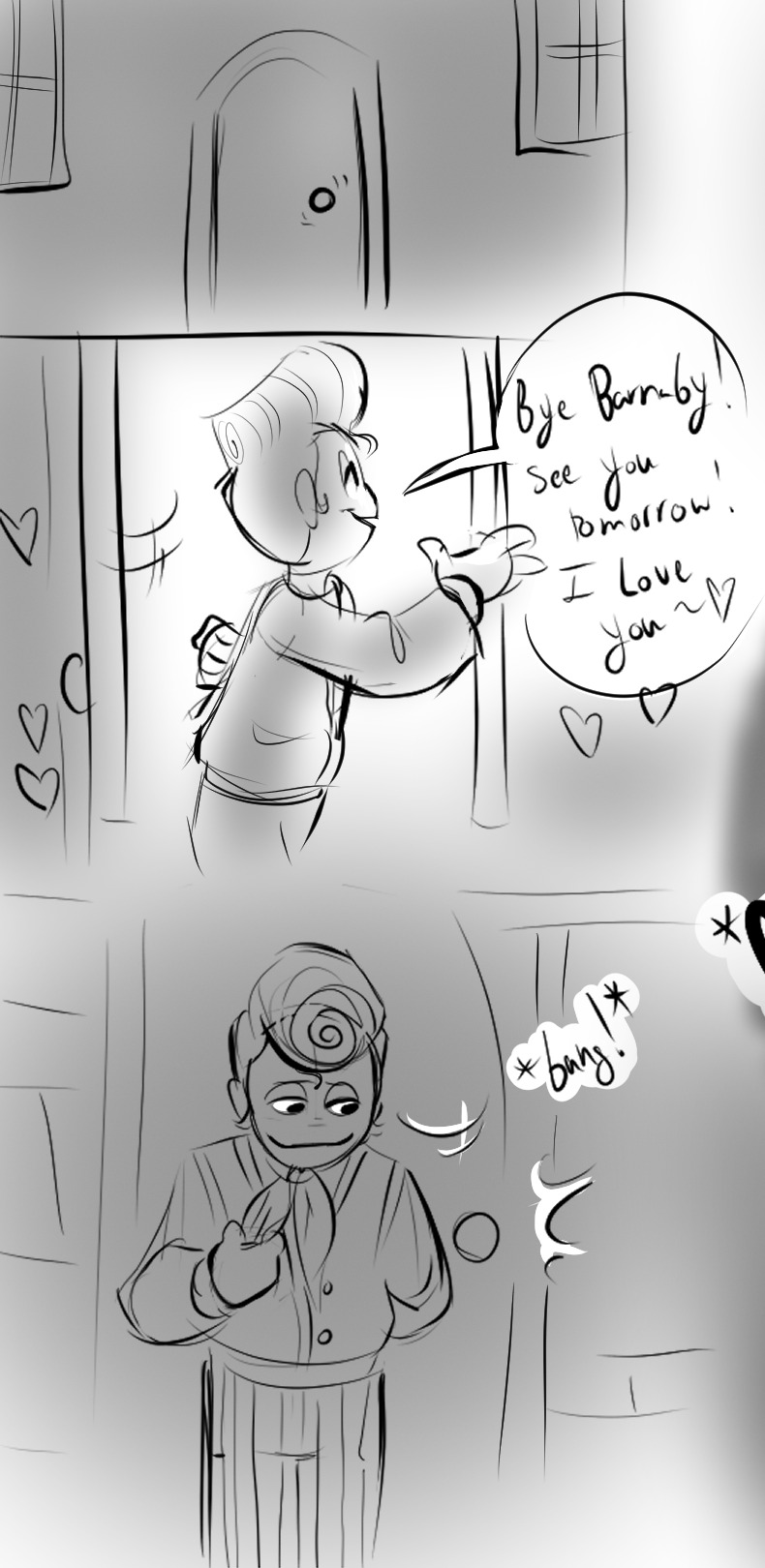


More under cut! Decided to go WAY back to do some preliminary explaining for it; explore Home and Wally's relationship and "responsibilities" .

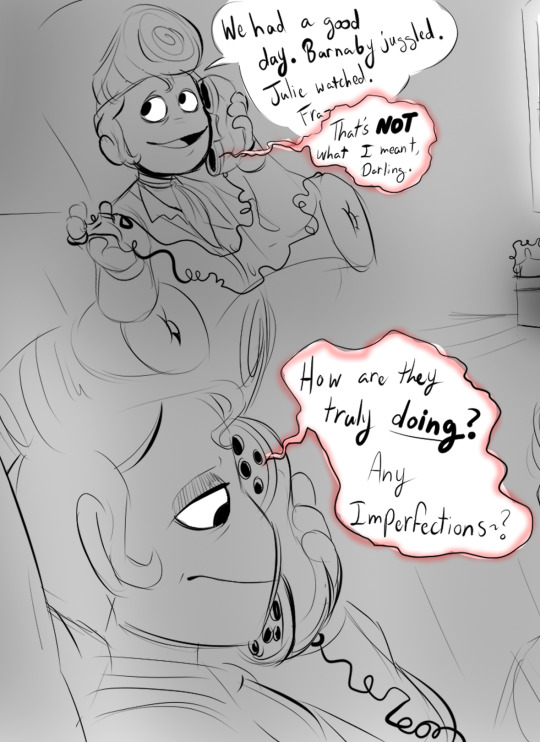
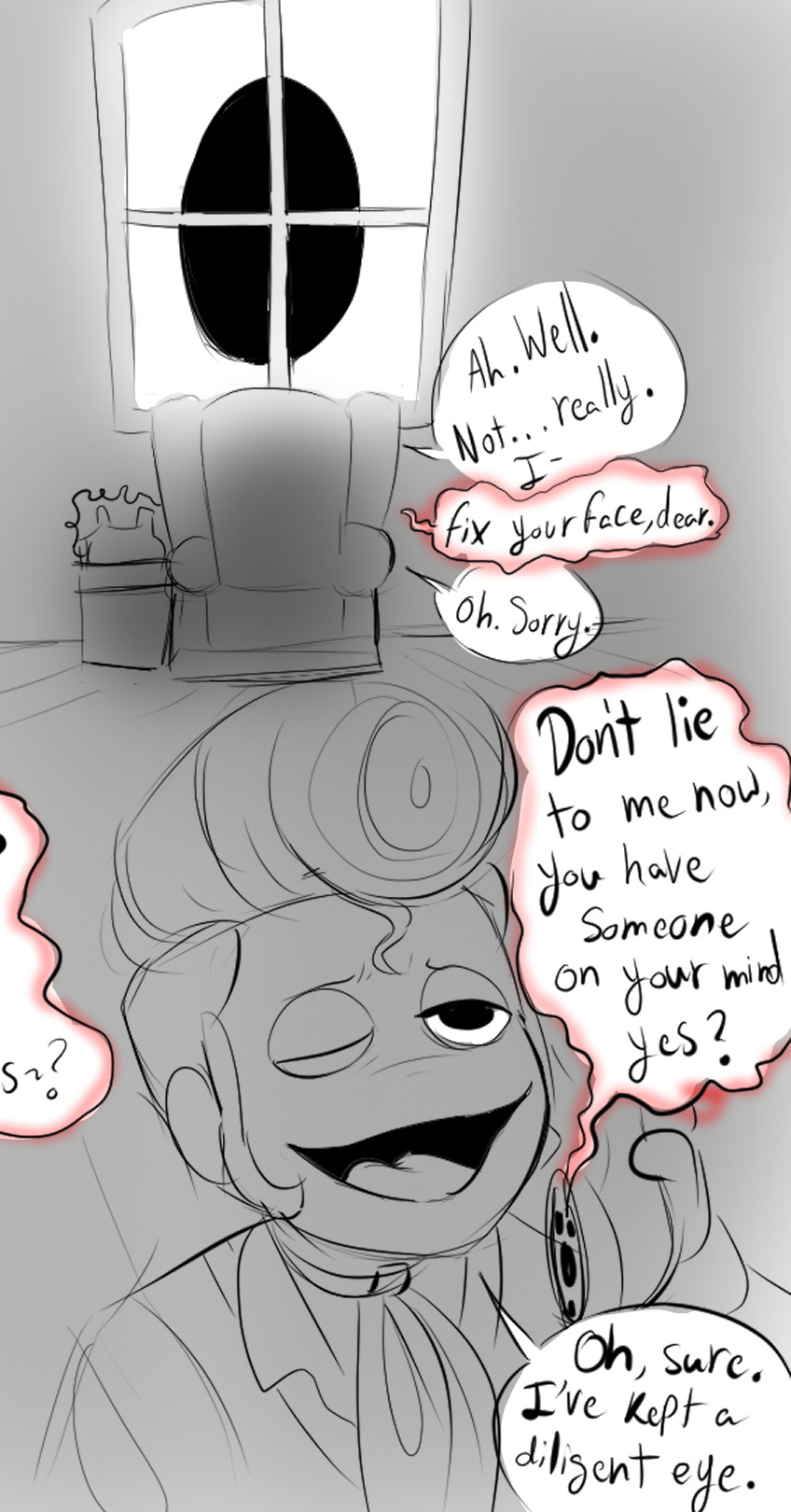
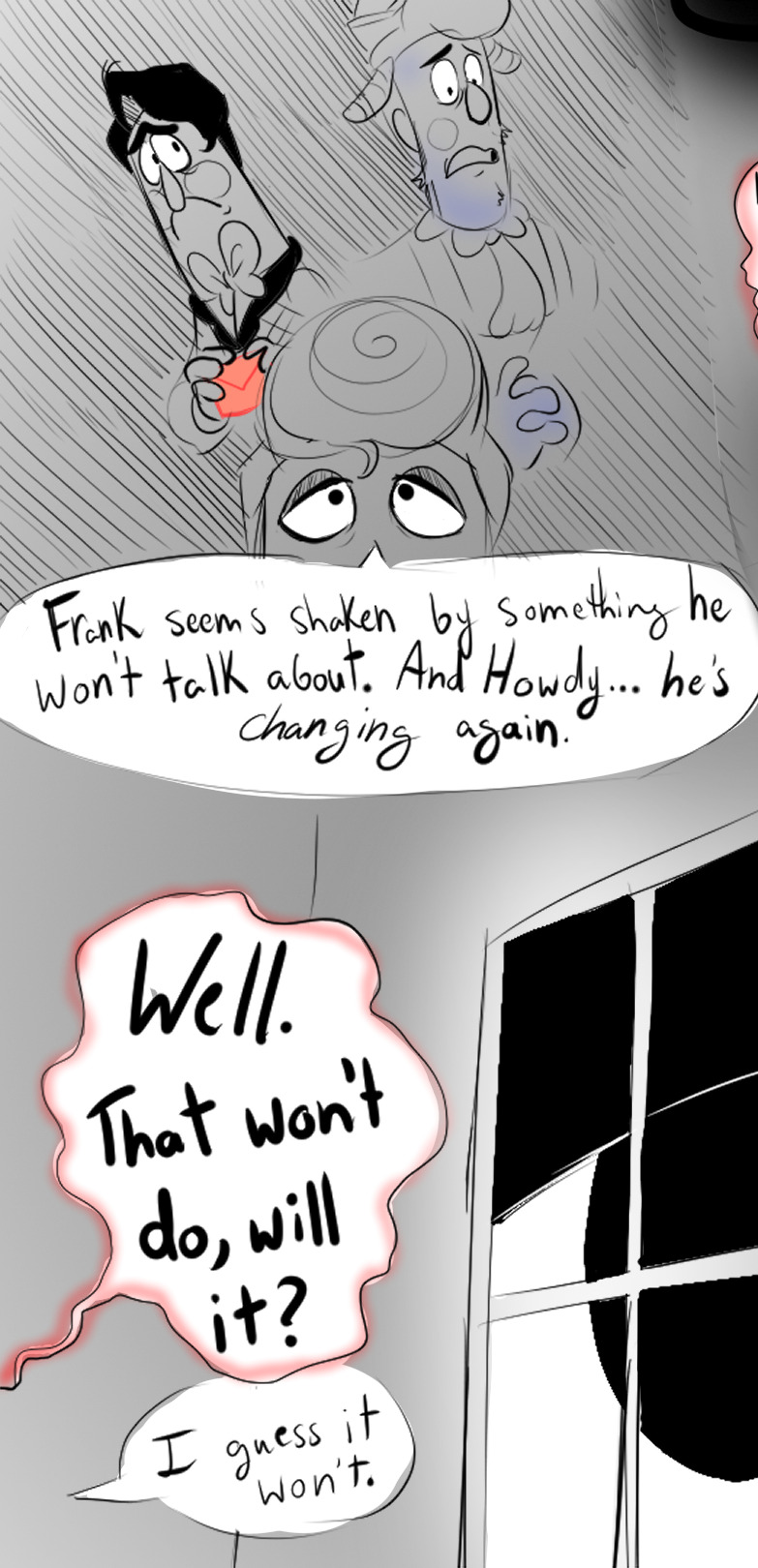
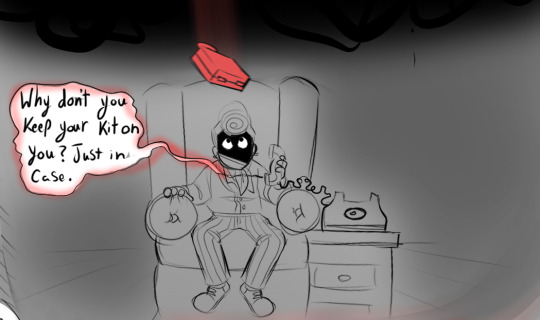

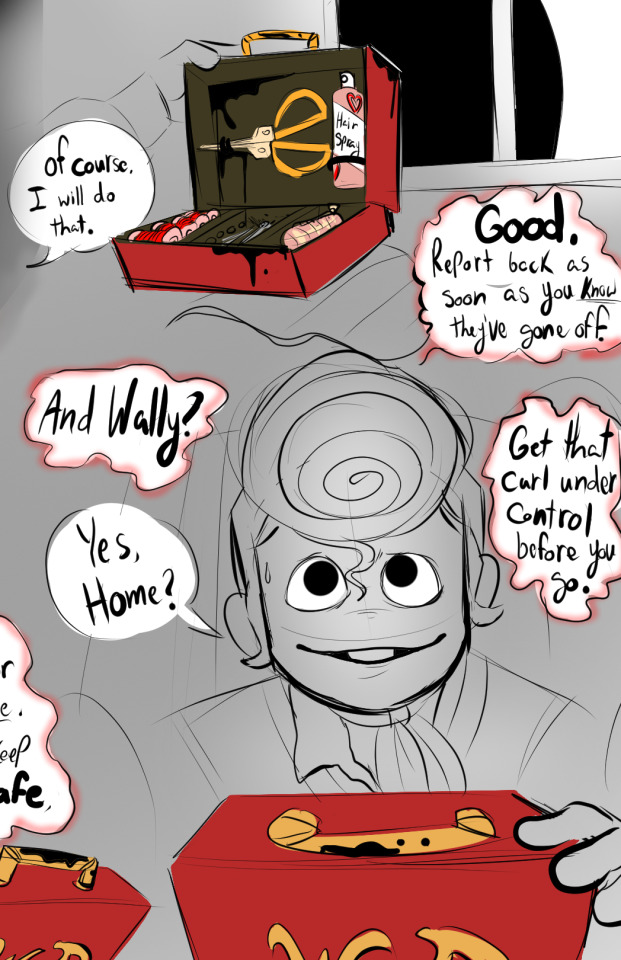
#welcome home#welcome home puppet show#welcome home fanart#welcome home arg#wally darling#frank frankly#howdy pillar#home#HOW THE F U C K DID IT GET THIS LONG THO#its all frikin exposition even#I have a lot of work to do but this was fun#Wally is Home's little attack dog#coasting on the 'home is the true villain' idea!#welcoem home au#THANKS FOR THE ASK#AfterHomeAU#art tag#welcome home art tag
2K notes
·
View notes
Text
The Review You Deserve: The Avengers: Infinity War
Infinity War? More like Infinity Bore!
[searches for high-fives]
[finds none]
Okay, that’s harder than Infinity War deserves. It wasn’t boring. That’s a positive that I can give it. But let’s face it, I saw it once, and that’s all I needed. In short: Infinity War was . . . better at doing particular aspects, but, overall, was on the same level as the lowest-common-denominator Marvel film out there.
Spoilers ahead . . .
Infinity War isn’t a single film, but three or four separate films stitched together by a single theme: how all these heroes tried to stop Thanos, and failed. Or, really. it’s a film antholgy trimmed down to a single Abridged movie.
The plot for Infinity War is simple: Thanos wants the infinity gems (or “stones,” as they’re called in the movie-verse) because there are too many people in the universe, and there needs to be a culling. This is the motivations of an insane person driven as such by past tragedies, but because this is Disney, we get all of this in exposition and are informed that he is a “tragic villain” through monologues over sad violins.
(Tangent: Loki was a great villain because the writers and director of Thor understood Shakespeare! You, Disney, do not! Fucking stop it!)
The heroes need to stop Thanos because they’re told that he wants the Infinity Stones for “Bad Things.” Well, that’s the surface-level reason. For the most part though, the heroes all find a reason to want to stop Thanos for personal reasons: Tony, because Thanos caused his PSD; Gamora, because he adopted her after slaughtering half her planet.
We start the story with Generic Uber-Bad’s Generals and Thanos, having just killed all of the surviving Asgardians, trying to get Infinity Stones from Thor and Loki . . . and in the most clumsy of sequences, they do. But they didn’t get them all, and with his final breath, Heimdall sends Hulk back to Earth (leaving Thor, Loki, and the Tesseract – the one thing Thanos was killing your people for – behind, because that totally makes sense as a dying gesture.)
Thanos then kills Loki after getting the Tesseract, and blows up the Asgardian ship and, supposedly, Thor with them. (Though don’t worry, he manages to survive the vacuum of space for just long enough – that being at least a few hours, if not days – to be saved by the Guardians of the Galaxy.)
Hulk lands, conveniently, in the Sanctum Sanctorum, where he warns Doctor Strange of what’s going on. That’s when Thanos’ minions show up to get the Time Gem –
– which happens to be when Tony Stark is giving his heart-felt Two Weeks to Retirement speech. Spidey happened to be friendly in the neighborhood too, and the three of them wind up on the Minion Ship when Strange is kidnapped.
Later, the remaining minions try to get to Vision when and his mind gem while he’s with Scarlet Witch (because Bulma Briefs invented frikin’ Infinity Stone Scouters for them, apparently?) but get thwarted by Captain America, Falcon, and Black Widow (the *most powerful* Avengers out there.) They convene at Avenger Compound, where Bruce Banner is waiting with Rhodes (because that makes sense?)
Meanwhile, Thor tells the Guardians “Thanks, but fuck off” and, with Groot and Rocket Raccoon to forge a new hammer, while the rest go off elsewhere.
Then we start following the segments:
Section 1: Peter Quill and the remaining Guardians try to stop Thanos themselves before he can get the stone from The Collector.
Section 2: Thor, Rocket, and Groot try to forge Mjolnir 2.0.
Section 3: Earth tries to protect the Infinity Stones that they have.
Section 4: Iron Man, Spider-Man, and Doctor Strange try to take the fight to Thanos.
Spoilers: They all fail. In some cases, for the most spectacularly dumb reasons imaginable.
Double-Spoilers: This is the first part in a two-parter, so guess who doesn’t beat the bad-guy in his goal to destroy half the life in the universe.
The film had potential. That Disney still refuses to get any real red blood on its hands is a small reason why it failed. The real reason it failed is because so many decisions were made not because they were logical to the characters or to the moment, but because they had to happen so the story could reach the next plot point. SO much of the story could’ve been solved if someone had just pulled the trigger when they had the chance! And you can’t use the whole “Well, they’re super heroes, so they have rules against killing . . . “ NO! Every one of these cretins has killed, whether blatantly or indirectly. But they had to be frikin’ idiots, because otherwise Thanos would’ve been stopped not even forty-five minutes into the movie!
And I don’t get it! I don’t get why, in a two-and-a-half hour film, you can’t dedicate at least ten minutes to show what could have been so bad in Thanos’ past that he would think wiping out half the life in the universe is a good thing, rather than have him tell us in almost five separate fucking monologues? Fucking five?! It creates a greater emotional connection for the audience when we get to feel that moment once and at the same time as the character. They obviously knew this, because they fucking showed that tender moment when Thanos kidnapped Gamora as a kid so she wouldn’t be slaughtered by his own kill-squad! Otherwise, we might not have cared as much when he threw her off a cliff so he could get the Soul Stone! See! THAT made us feel for Thanos! That worked! We got why Thanos was crying, and why he kept being choked up through the film about her death, because we were there when he found her as a kid! Wouldn’t it have been nice to have that same goddamn moment instead of him saying why he thought killing half the universe would be something good for everyone?
And of course – of course – Disney can’t let a somber moment be somber! “Oh, hi Thor! You just saw your brother be strangled in front of your eyes and your entire people slaughtered? Well, let’s have a goof-off with Peter Quill and you constantly call Rocket Raccoon a rabbit! Isn’t that great!” Or how about half the Earth population being dusted like in Buffy in the worst tragedy ever, but have Samuel L. Jackson almost get off a trademark Muthafukka? Wakka wakka fart joke!
It’s called “timing!” you repugnant rodent! Learn it!
We, the fan boys, got a bit of what we wanted. We got to see Thor with the Guardians of the Galaxy. We got to see man-child Peter Quill geek a bit with child-man Peter Parker. We had a snark-off between Stark and Strange. We got to see Robert Downey Junior phone-in impotence jokes at the expense of Bruce Banner-nee’-Hulk in a moment that shouldn’t have had jokes because Jesus Christ movie just let us have a serious moment here! But so much of the film’s progression necessitated everyone either taking a free-action to explain everything to us or to act completely out of character! Spoiler Alert: Nice job fucking things up, Andy Dwyer! Your plan to save the Universe was perfect except the part that involved you!
The directing was passable, but barely. The action scenes were cluttered at times, but for the most part, not as messy as they could’ve been. But overall, that’s all the directing was: passable. No scene passed along any sort of emotional weight, nor hinted at anything deeper than they were expressing. Even the harder moments, up until the end, didn’t hit. For example: When Gamora died . . . I felt nothing. There was no emotional impact. Thanos threw her off, we saw how sad it made Thanos . . . and then the corpse. Mufasa had a better fall-death! Hell, Inspector Javert had a better fall-death!
Also, the ending . . . which was just that: an ending. Which, I get it, it's how the comic book The Infinity Gauntlet ended. Good job, writers, you read a trade paperback! It gave no indication that there was going to be anything coming, like with Empire Strikes Back. It was just . . . and end. A "Fuck You." (And no, post-credits don't count! They never count! Stingers are post-sex cuddling!)
Now, there were a LOT of clever misdirects that kept things interesting: the reveal of Gamora’s Swiss Army Knife, which everyone in the audience was made to believe was going to be used to kill Thanos, but wound up ultimately being used as a set-up to failure, being one of the better ones. There were nice touches! And some of the parts that set up Person A being on the Infinity Kill List, but only to show that it was Person B or Person C instead, were nicely done.
But I don’t care. Because I know that these deaths are all going to be undone in the second part. In a universe where everyone can and has come back to life (coughcoughGrootcoughcoughColsoncoughcough) all of these dustings have as much impact as any comic book death or pro wrestler retirement. Plus, they didn’t kill any of the A-listers. All of the original Avengers made it to the end. Only the Second Wavers bit it.
People will say that Disney took a risk with this one. This won’t be true. Every person who died will be brought back. All the consequences will be reverted. Timey-wimey will save the day. And thanks to the Magic Space Beeper which Nick Fury apparently had the whole fucking time, we will now have our new Captain Mary Sue to come and save our day soon. (Which honestly pissed me off most: if you had a magic space beeper that could summon a space Captain Marvel to come save anyone at any time, why didn’t you use that in the first Avengers film, Fury?! And even if she did show up, what the Hell could she do now? Spin the Earth in reverse faster than the speed of light, and turn back time twenty-four hours?! Thanos won! You’re dusted! Game over, man!)
I’d say the only parts of this film worth watching are the fights, but even then, that’s only on occasion. Again, so much of the action depended on contrivance (“Oh no, his space weapon somehow prevents me from phasing, especially in this scene where I’m not being attacked! Thank god Black Widow is strong enough to block it with her not-super strength, which I have, and with her weapons made of regular material, and not from Vibranium, which is the unbreakable material that I’m made from!”) that I kept expecting Thanos to reveal that he had fabricated the events from Reality Stone out of bored curiosity the whole time.
And what the Hell, Disney? You own Industrial Lights and Magic, one of only two special effects studios in Hollywood! So why do you keep phoning in the CG? Seriously, the fight between Thanos and Hulk looked like something out of a first-generation World of Warcraft cinematic! And I can’t be the only one who noticed how obviously rotoscoped Bruce Banner was in the Hulkbuster armor at the end! Vaporwave videos had less shifting! And don’t tell me “Look at how awesome they made Thanos in all the close-ups!” because that’s just proof of what they can do when they decide to do it, the lazy assholes!
Infinity War is typical Disney, which is now synonymous with glitter-rolled bullshit! There are parts which are worth paying attention to, but is, on whole, worth ignoring. The motivations were superficial; the drama was lip-service; the characters had almost no consistency; and nobody in the audience seemed to care, because that’s what we’ve come to expect from the studio that brought us Dog with a Blog.
Final Score
Rating: 5.5/10
Xowie: 2
Half-Life: 15 months
Nelson Ranking: Laundry Film
Tom Upside
- Up until the end, Thanos, himself, only kills two people. And one of those people he kills is technically a villain. Now somebody go back and confirm this, because this film is too bullshit for me to care.
2 notes
·
View notes
Text
The Review You Deserve: Blade Runner: 2049
Blade Runner: 2049 does not deserve to be as good a film as it is.
Spoilers ahead.
A needless cash-grab sequel bargaining on name recognition to bolster a depressed box office, Blade Runner 2049 promised to be a superficial tour through 80s cyberpunk clichés with Apple aesthetics, a pandering script, and a paint-by-numbers plot obsessed more with setting up the franchise than telling a complete story. It promised lip-service without any respect for what made the original Blade Runner so unique and, arguably, influential on the cyberpunk genre. It promised glitz and bullshit masquerading as substance.
I am happy to report that it did not live up to those promises. Instead, Blade Runner: 2049 is what so few films today are and even fewer sequels try to be:
Its own story.
Blade Runner: 2049 is, at its core, a mystery. The world is not at stake. Humanity is not on the line. Hell, through the film, you wonder if anyone is even human at all! Ryan Gosling's character, K, is a Blade Runner who is sent to retire a rogue Replicant, and happens to stumble upon a deep and buried secret: one of the original Replicants had the ability to conceive a child . . . and that child is somewhere out there. And so he's given an assignment: find Kid Replicant before The Wallace Corporation and the slightly-less-insane-than-usual Jared Leto gets their hands on it . . . then kill it and destroy all of the evidence. Because that's how the LAPD works in 2049.
From there, we are pulled into the Scylla and Charybdis of the nature of the artificial and the origin of souls, and really frikin' awesome trenchcoats, techno music, and badasssery! All the things you could ever want in a cyberpunk extravaganza!
All the familiar notes are here in 2049: You have an Average Joe cop who's in over his head; a mega corporation that is both State and God; eerie silence broken by synthetic sousaphones and philosophical ponderances in the rain. Though the scope has extended beyond the borders of the city, all of the familiar aesthetics are still there: Everything is barren and artificial, and the lights are neon. The technology has progressed organically in the realm of the world it inhabits to include our current predictions of hyper-holographic GUIs, while still maintaining most of rusted 80s vision. It is grounded in the familiar but organic in the growth, which is funny, considering this is a world where even the lifeless is void of life, and the love is as artificial as those who love.
Hope you brought your shovels, because there's no surface-level superficiality here! There are *layers* to get through!
Like the original Blade Runner, 2049 is more than just the sum of its Neo Noir parts. It delves into the existential quandary of what it is to be human in an artificial world, only now it ponders that question from the other side: asking us to consider when the artificial is no longer artificial. It doesn't explain it to you any more than is absolutely necessary, nor does it present the conflict as some binary Right or Wrong. It lets you ask those questions and find your answers yourself. It expects you to get that the updated Voidt-Kampff test is designed not to discern the inhuman from the human, but to identify when the inhuman begins to develop humanity. It expects that you can accept the romance between K and Joi, and still appreciate the poetic tragedy of an artificial human finding love in a holographic AI. It can expect you to do all of this without bashing it over your head with exposition or the characters blurt it out for the sake of the cheap seats, because it doesn't expect you to be an idiot! Which is so rare in Big Budget Films these days, it might as well be a Replicant trait!
What's even nicer is that the creators knew that not everyone was around thirty years ago. They knew people would come in with fresh curiosity just as much as they would to see where the story goes next. The references to the original Blade Runner are weaved organically through the mystery: revealed as clues uncovered by K, and presented just enough to serve the narrative and not so much that it comes off as pandering. So even if you've never seen the first film, you can still follow along with 2049 without begging your neighbor to draw you a map , and you can leave the theater without needing to wait for the next one to actually tell the rest of the story!.
Also, unlike most films today, it knows when to shut the hell up! God, it's so nice to have a movie that lets the action do the talking sometimes!
2049 had its flaws, of this I cannot deny. It was definitely brighter and lacked some of the atmosphere of its original. Some of the editing could also have been tighter too, and there were points where pontification took precedence over preparation. Much like when one stares too long into the abyss, the abyss stares back; but if you stare too long into pretentiousness, then you risk becoming a douchebag film, and there are points where the film maybe could've kept that abyss a little more outside of its periphery.
But there's criticism, and then there's being a dick. And I while am most definitely a dick, there is little about 2049 that I can criticize. I fully expected this film to be a passable Xerox of a better original at the very least. But dammit, Blade Runner: 2049 *liked* me! It liked me enough to NOT just take my money and run, but to give me a reason to come back for more! And come back, I will! For there is a difference between talking about a film and discussing a film. To talk about a film is to walk to your car and say what things you did or did not like; to discuss a film is to stand out in the rain and ask one another what they thought the film *meant.* And this is a film that bears discussion.
Blade Runner: 2049 stands as the exception to the rule: that a modern sequel can be more than fan-bait or a franchise-linchpin. A sequel can be unique. A sequel can be its own story.
Most of all, a sequel . . . can be good!
Final Score
Rating: 8.7/10
Xowie: 25
Half-Life: 10 years
Tom Upside
- Can a criticism be a criticism when it doesn't do any criticizing? Maybe. But it sure as hell can be boring!
#bladerunner#bladerunner2049#moviereview#thereviewyoudeserve#tomupside#boxofficedrumroll#tears in the rain#blade runner
1 note
·
View note